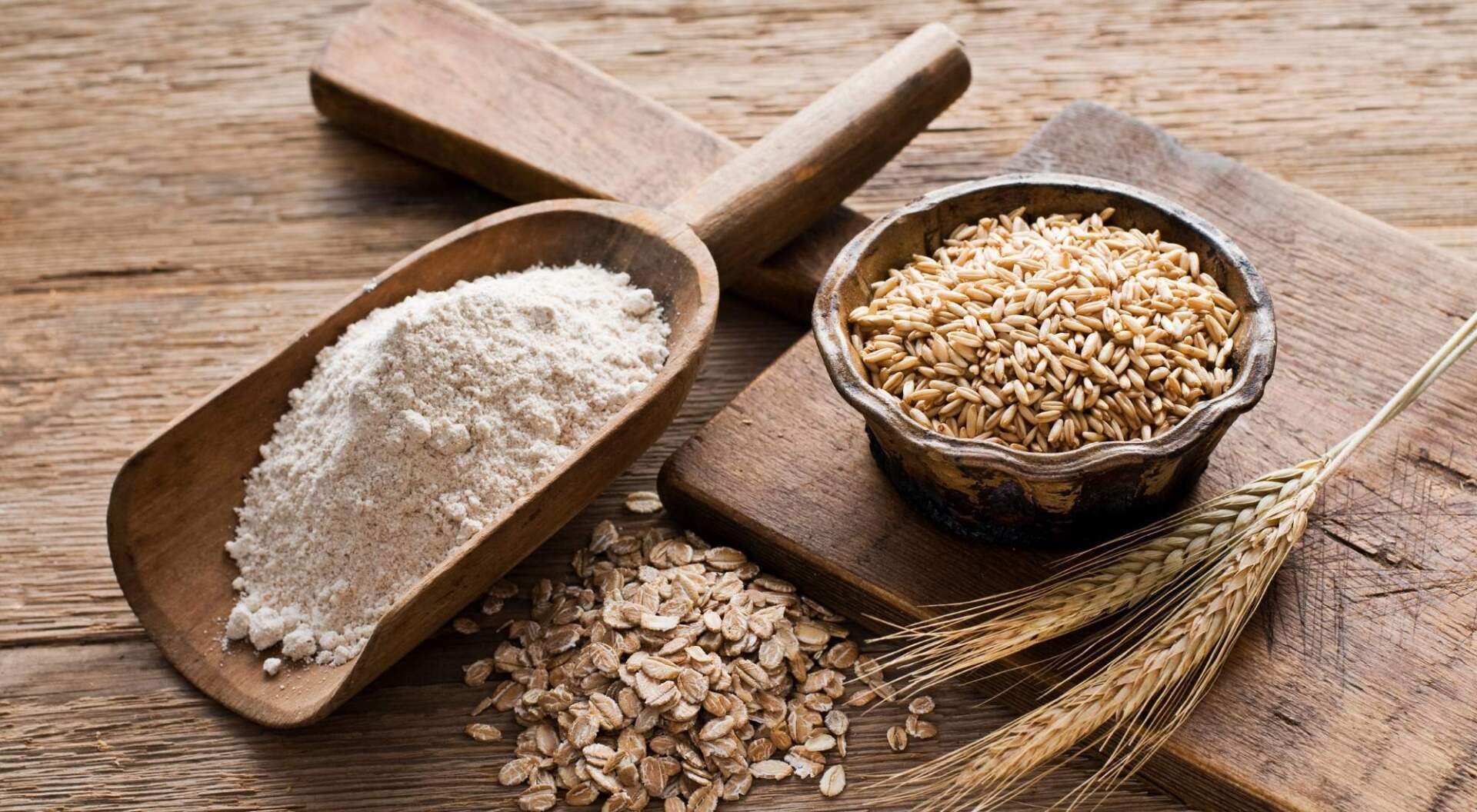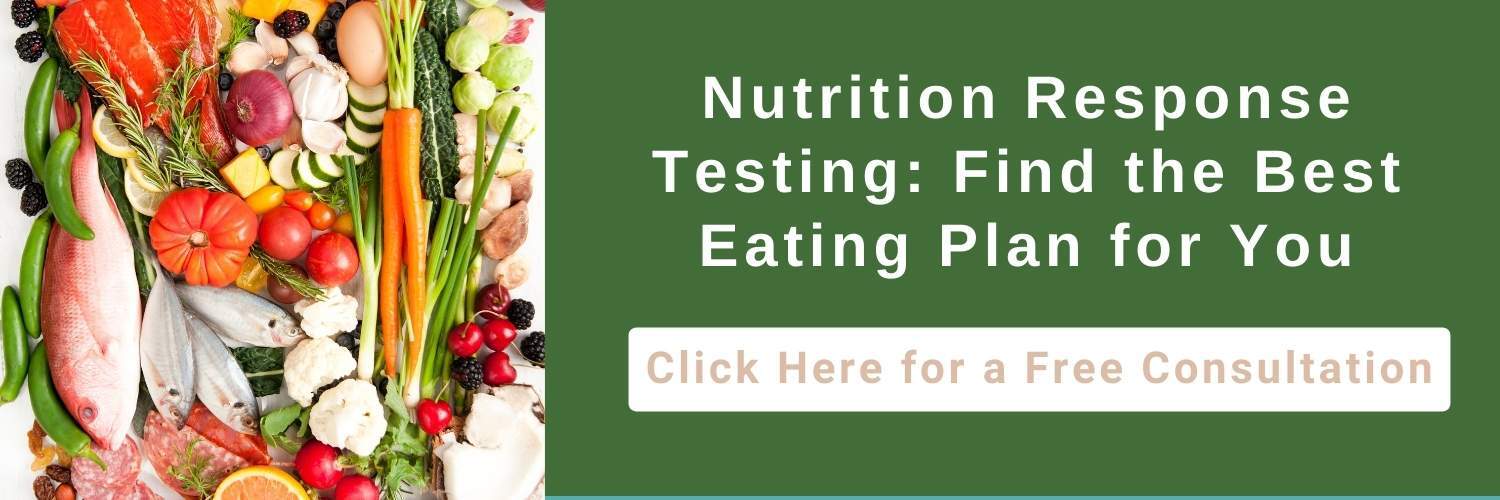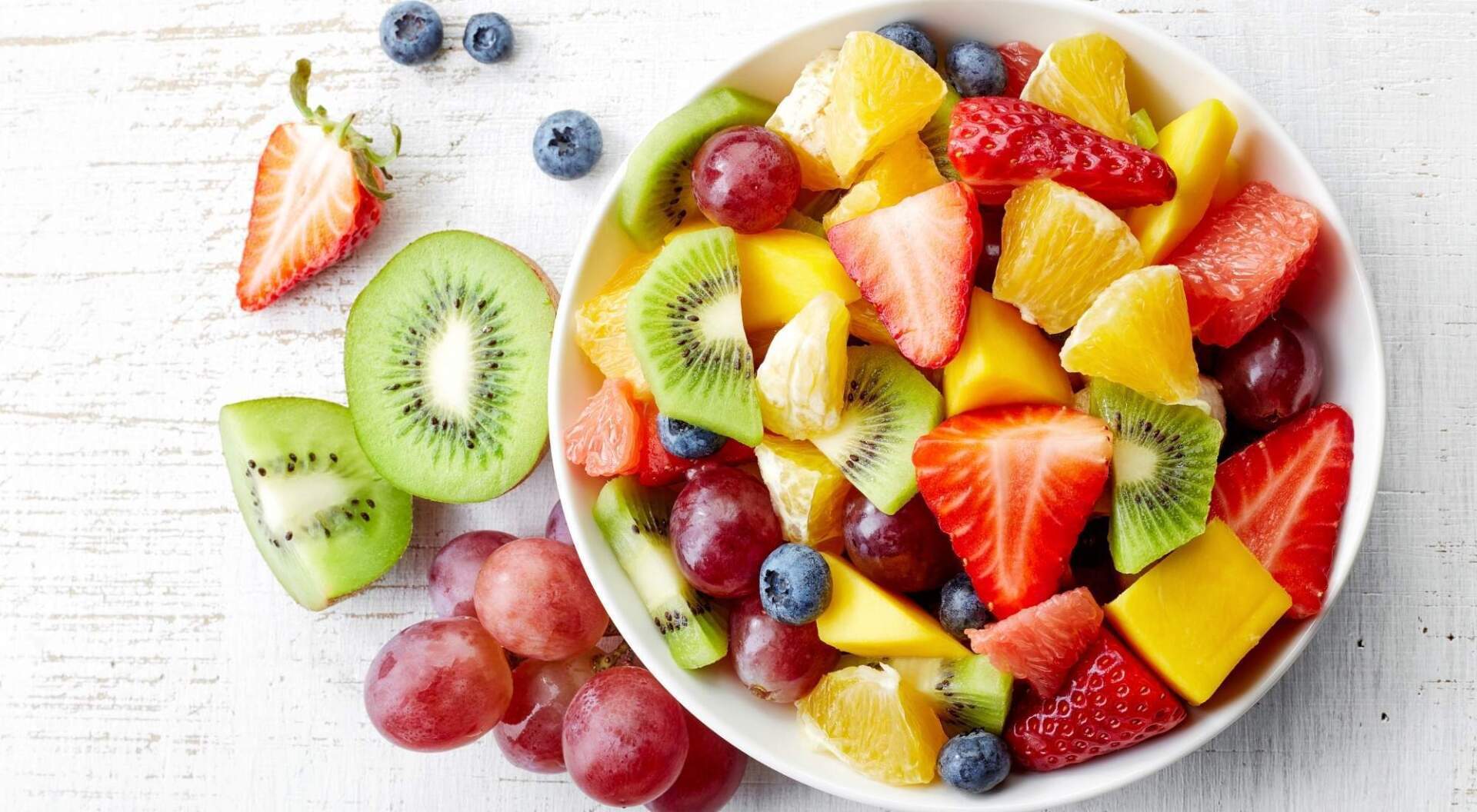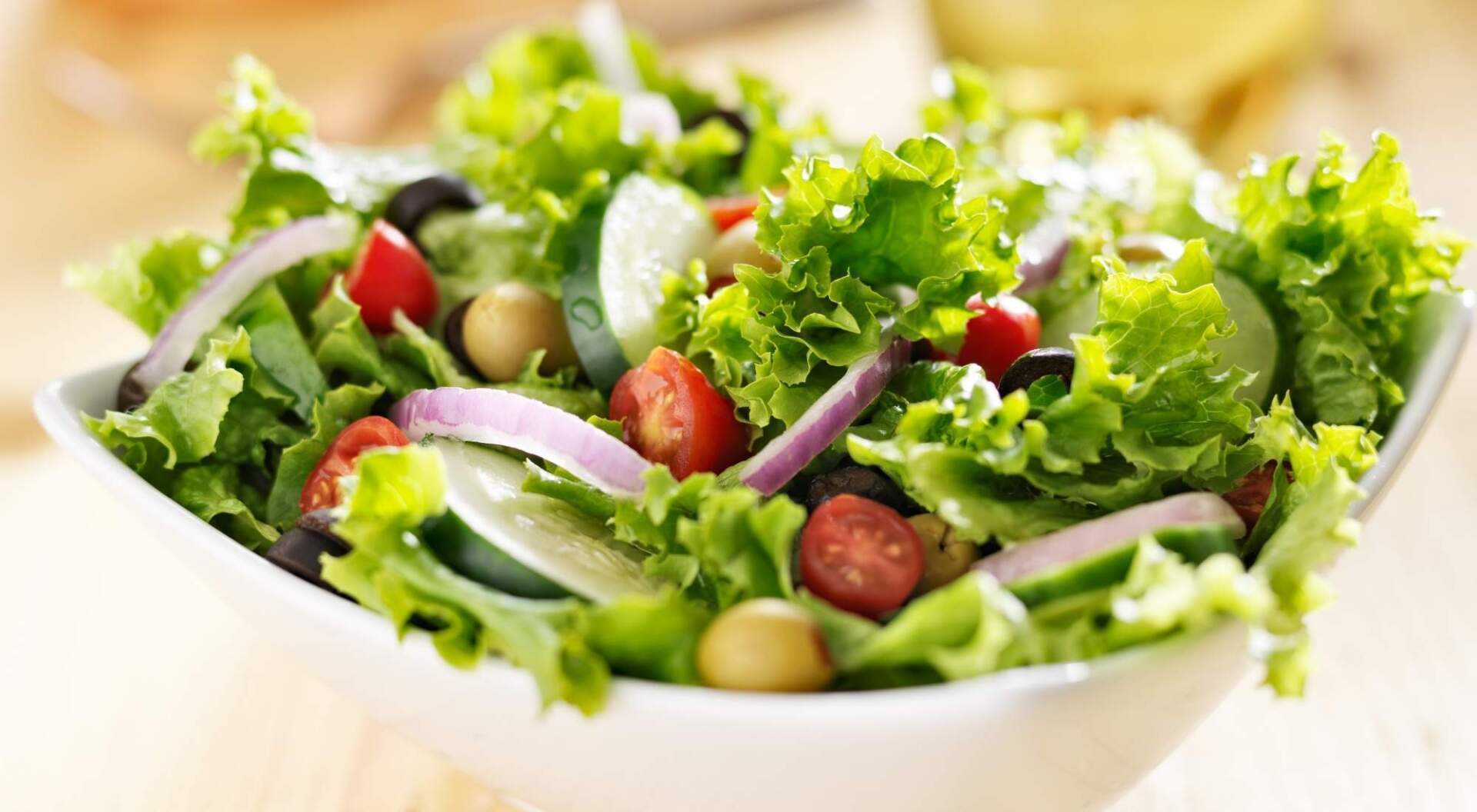What Does a Whole Food Diet Look Like and Is it a Healthy Choice?
"The content below is not intended to be a substitute for professional medical advice, diagnosis, or treatment. Always seek the advice of your physician or other qualified health provider with any questions you may have regarding a medical condition."
What is a whole food diet? What is considered a whole food? What does a whole food diet look like?
Have you been asking these questions? Are you wondering if a whole food diet is for you?
Finding information about whole food diets and deciding if one is for you can be a difficult decision.
HealthierU is here to help you navigate the ins and outs of whole foods and what it means to eat a whole food diet.
Wondering how to eat a whole food diet? Read on to find that answer and more.
Table of Contents
What Is a Whole Food Diet?
Eating a whole food diet is pretty simple. Whole foods are foods that have been kept as close as possible to their natural state. A whole food diet focuses on unprocessed foods and avoids processed ones.
Essentially, eating whole foods means focusing on only eating from the fresh sections of the store such as:
- The produce section
- The dairy coolers
- The meat and seafood department
- The whole grain aisle
Within the whole foods lifestyle, you can find plant-based eating. It is similar to a whole foods lifestyle but it places more of an emphasis on consuming plant-based foods.
Having a healthy lifestyle means finding what works for you.
Health-conscious eating and exercise can go a long way in helping you reach your goals.
A Whole Foods Diet Is NOT a Specific Eating Plan
Eating whole foods is not just some new fad diet. It is far more of a lifestyle than a diet. A whole food diet, sometimes called “eating clean” is not a “30 days to totally transform your life” marketing scheme.
It is a tried and true way of living that has offered health and longevity since the dawn of time.
Starting a whole foods diet is not synonymous with locking yourself in a prison of deprivation. In fact, you can make your own choices on what you want to eat, especially in the more “gray areas.” For instance:
- You can choose if you want to stick with organic meat and poultry or simply opt for minimally-processed protein options.
- You can choose if you want to incorporate canned beans or soak your own dry beans.
- You can choose local produce or keep things simple with typical grocery store goods.
Is a Whole Food Diet Healthy?
Is a whole food diet healthy? Yes, absolutely.
Eating whole foods simply means eating food as it was meant to be eaten, without all the extra chemicals and processing.
You aren’t taking out entire food groups, just the junk extras like added sugar and other manufactured ingredients. This means you still get all the fuel types your body needs to function, from fats to carbs to proteins and beyond.
Unlike many fad diets out there, a whole food diet is not based on restricting caloric intake or denying your body a healthy amount of food. It is purely based on eating foods that are good for you and good for the planet.
6 Health Benefits of Eating Whole Foods
When it comes to focusing on whole foods and eating clean, there are too many benefits to count. But there are a few that stick out.
#1: Added Nutrients
The Standard American Diet leaves a lot to be desired in the nutrient department. Highly processed foods are often severely lacking in vitamins such as:
- Vitamin C
- Vitamin B12
- Vitamin D
- Iron
These vitamins can be found in whole foods. A diet rich in whole foods helps to restore these vitamins and nutrients, leading to improved health overall.
#2: Added Fiber
Fiber isn’t found only in your raisin bran cereal. A variety of whole foods are rich in fiber and that is a good thing because fiber is an incredibly necessary nutrient.
Fiber helps promote digestive health by carrying unneeded food waste from the body and helping to keep everything moving smoothly.
It can also help to lower glucose and blood cholesterol, reducing the chances of heart disease and diabetes.
#3: Added ‘Good’ Fats
Fats are, unfortunately, one of the main food groups to be demonized but your body needs them to function. Not only do fats give you energy, but they can also help your body absorb nutrients better.
There are “good fats” and “bad fats” and eating whole foods can help to increase the good ones such as omega-3s and monounsaturated fats.
#4: Added Whole Grains
Consuming whole grains is a great way to add more fiber and other nutrients to your diet.
A whole grain is a grain that has not been refined and heavily processed. Whole grains have three different parts:
- Bran
- Endosperm
- Germ
Refined grains have only the endosperm.
Your body processes whole grains more slowly than it does refined grains and this helps your blood sugar and insulin to remain regulated and happy.
#5: Added Phytochemicals
Have you ever heard of antioxidants? Everyone talks about how you should add blueberries to your diet to get more antioxidants but did you know that other whole foods have these as well?
Antioxidants are a type of phytochemical, a naturally occurring plant food component that carries some incredible health benefits for humans. These can help break down fat and cholesterol. Antioxidants are also known to have anti-aging properties.
The only way to get the antioxidants you need is to consume them through whole foods.
#6: Fewer Additives in Your Diet
Eating more whole foods means eating less refined foods which means consuming fewer additives.
Refined, processed foods have a ton of junk and chemicals added to them.
For instance:
- Non-whole wheat flour is often bleached
- Non-whole grains like rice are often bleached and over-processed
- Sweets have refined sugar added in excess
- Flavorings are full of extra sodium
Reducing the number of chemicals and additives you consume is a great way to boost your health and reduce your chances of huge health complications down the road.
3 Additional Benefits of a Whole Food Diet
There are more benefits to
eating whole foods than just diet-related ones.
#1: It’s Sustainable
A lot of fad diets are based on restriction and denial. They focus on avoiding foods and cutting portion sizes. Restrictive fad diets are simply not sustainable for most people, nor are they healthy to follow long-term.
A whole food diet is incredibly sustainable.
Instead of focusing just on cutting things out in your diet, eating whole foods makes you focus on adding things in and finding better versions of the foods you already love.
Sure, you will have to drop your weekly donut run and you likely won’t find a whole foods version of your favorite milkshake, but you can find some great alternatives and substitutes.
Because you are still eating all the main food groups, eating whole foods is a sustainable way to work towards health.
#2: It’s Safe
Diet culture’s offenses are far more numerous than fatphobia and patterns of disordered eating. Significant health problems, nutrient deficiencies, and wildly unhealthy relationships with food are all earmarks of fad diets and the culture they perpetuate.
But whole-food diets are different. Instead of being based on a shame-filled list of “never eats”, whole food diets are rooted in a list of “here, eat this instead.”
Your favorite, calorie-dense cashew chicken? Just sub the breaded chicken for grilled, make the sauce with honey instead of sugar, and serve it over brown rice.
Are you craving pizza? Find a recipe for the crust that uses whole-grain flour and avoids super processed ingredients. Top it with some organic, raw cheddar and your favorite fresh veggies for a wholesome and healthy pizza dinner.
Do you love adding creamer to your coffee? Toss that processed, sugar-filled bottle in the trash and go with a splash of organic heavy cream instead.
With a whole food diet, you are not restricting yourself or taking the joy out of eating. You don’t have to worry about not getting enough nutrients in your meals.
Is a whole-food, plant-based diet healthy? Yes, yes it is.
#3: It’s Suitable for Anyone
With a whole foods lifestyle, you don’t have to worry about cooking different meals for everyone in the family. Whole foods provide the nutrition needed for everyone, from kids to adults, without leaving anyone missing a vital nutrient.
What Are Good Whole Foods to Eat?
What is a good whole food diet? What are good whole foods to eat? What does a whole food diet look like? These are common questions for someone venturing into the whole foods world for the first time and HealthierU is here to answer them.
You might be surprised to find out just how many foods are whole foods. When looking for whole foods, your best friends will be:
- Fruits and vegetables
- Meat and poultry
- Dairy
- Beans and legumes
- Whole grains and flours
Each of these categories is filled with variety.
Fruits and vegetables include:
- Avocados (and red onion, lime, garlic, and tomato… sounds like guacamole night!)
- Fresh berries
- Eggplant (try roasting it in a pan with olive oil, garlic, and sea salt!)
- Apples
- Cucumbers
- Cabbage (try sauteing it with some coconut oil, garlic, and organic beef!)
- Watermelon
- Just about any other fruit or vegetable that you love
Meat and poultry options encompass:
- Seafood (try baking tilapia with lemon and sea salt!)
- Beef
- Grilled, baked, or boiled chicken
- Other meats that do not have added ingredients
Minimally processed — preferably organic — dairy products are still on your shopping list! Go for items like:
- Minimally processed butter (in moderation)
- Whole milk
- Raw cheese
- Yogurt (without anything added)
The world of beans and legumes has a lot to offer. Consider:
- Garbanzo beans (puree with lemon juice, garlic, sea salt, and some olive oil to make hummus!)
- Black, kidney, and pinto beans
- Peas
- Lentils (cook thoroughly and mix with curry powder, sea salt, and other clean spices and serve over brown rice!)
Your whole grains and flours are the ticket to delicious baked goods and gourmet dishes. Think of:
- Quinoa
- Brown rice
- Whole wheat
- Spelt
- Oats
- Millet
- Rye
Most of these can be cooked whole or purchased as flour, pasta, or even baked goods. Just be sure to check ingredients before buying anything premade.
These items only scratch the surface of the menu that a whole food diet has to offer. You won’t be going hungry and you won’t be left with flavorless foods.

Tips for Starting a Whole Foods Diet
Before you dive into your whole food journey, you should make a plan to help you find and stay on the path.
Here are some great ways to set yourself up for success:
- Make a plan (when are you starting, what do you need to do before that, are you doing it with anyone else…)
- Make a detailed shopping list (check store websites before you go so that you can create a super-accurate list)
- Find new recipes that look amazing
- Start meal planning so you don’t find yourself ordering pizza after being surprised by a busy day
Another great key to success is getting to know your body and finding an expert to help you on your journey.
HealthierU offers Nutrition Response Testing, an innovative test that helps you learn what foods work well with your body and which ones just don’t. After your testing, we work with you to create a plan that will set you up for maximum health and vitality.
Create a Whole Foods Eating Plan That Will Best Serve Your Health With HealthierU
Here at HealtheirU, we believe in helping our clients holistically to reach their goals through a healthy lifestyle including whole foods. Dr. Sergi is a highly-trained professional who has spent years helping her patients increase their quality of life and find answers to their nagging health issues.
As one of the premier Brooklyn nutritionists, Dr. Sergi knows how to help you create an eating plan that will fit who you are and what you need.
Sign up today for your free consultation and start changing your life for the better.





